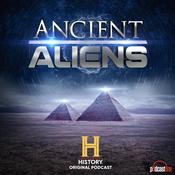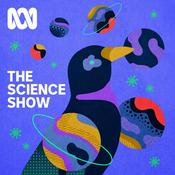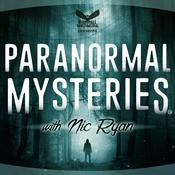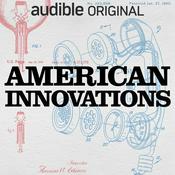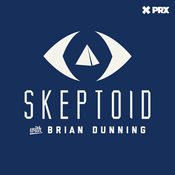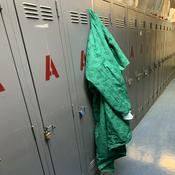78 episodes
- Access the full transcript for this episode
“The goal of the students is not to learn how JupyterHub works. The goal is to learn what’s the topic of the course. So we want to make it as easy as possible to get into an environment where they can learn what they’re actually there to learn, and not get in their way with the tools that they’re supposed to be using.”
Welcome to season 11 of the podcast! To kick off the new season, we interviewed Min Ragan-Kelley, Senior Open Infrastructure Architect at Berkeley Institute for Data Science (BIDS) and a founding member of JupyterHub. Min discusses the origin story of JupyterHub and how it evolved into the scalable platform that students and researchers alike utilize daily, reflecting on key design decisions that have shaped the platform into what it is today. He describes the importance of the platform to “get out of the way” of students in order to best aid in learning how to operate within a computing environment. Finally, Min touches on his passion for open source projects and what he hopes to come of it in relation to data science education.
This is a public episode. If you would like to discuss this with other subscribers or get access to bonus episodes, visit datascienceeducation.substack.com Recent Data Science Graduates: Storytelling Through Data Journalism (feat. Ian Castro and Lydia Sidhom)
2025/12/12 | 25 mins.Access the full transcript for this episode
“From my own experience, you don’t need to really be the perfect data scientist to do the work. I think, especially at Berkeley, there’s a lot of pressure to know everything. That’s not necessarily the case…For a lot of the types of work that I do and in my industry, you don’t actually need to have or be the most technical person…The thing that’s actually more important, and if you want to get hired in politics or in political work is actually having domain knowledge.” —Ian Castro
In the last episode of the season, as always, we sit down with some recent Data Science graduates from UC Berkeley. Today, we talked with Ian Castro, Political Database Manager at Equis Research and former DATA 8 course staff member, who talked about how teaching and building foundational data science courses shaped his commitment to tackling issues like housing, inequality, and political representation. We also talked with Lydia Sidhom, Data Reporter at The Washington Post, who reflected on how her experiences with DATA 8 and working for the Daily Cal helped pull her towards data journalism. Together, Ian and Lydia show how recent graduates are using data to analyze and explain the world!
“I think being a journalist—especially a data journalist—requires you to be kind of like a mini expert on every story that you do. So being curious about many different fields and diving into different kinds of data is really a big plus.” —Lydia Sidhom
This is a public episode. If you would like to discuss this with other subscribers or get access to bonus episodes, visit datascienceeducation.substack.com- Access the full transcript for this episode
“It struck me that academic integrity is a serious issue, but one whose treatment I felt was overly punitive. I don’t want us to have to act as police for our students. Students very much want to do the work, but they often are just ignorant, for whatever reason, of what academic standards at the university level are. And so I wanted to instill this kind of restorative justice framework to make moments where students do falter and they do make mistakes, I wanted to turn those into teachable moments where they could learn, and turn what is a bad situation into perhaps a positive one.” —Taiyo Inoue
Today, we speak with Sarah Senk and Taiyo Inoue, co-hosts of My Robot Teacher, which is a podcast affiliated with the California Learning Lab. Sarah and Taiyo discuss how they both bring their respective lenses of comparative literature and mathematics to examine the question and implementation of AI in education, sharing concrete classroom and academic policy uses for LLMs. They touch on academic integrity through a restorative-justice lens, the idea of AI as an opaque cultural archive, and examining higher education as a “slow disaster.” Finally, they end with valuable advice for faculty listening in, giving tips on how to approach AI.
To hear more about Sarah and Taiyo’s thoughts about all things AI and education, listen to their podcast, My Robot Teacher!
“When we talk about cultural memory, we’re thinking about things that no one individual or social group could hold in their minds. It’s the stuff that is recorded in archives, libraries, cultural practices, arts, etc., and so all of that stuff trained large language models. And so I think you can think about large language models as a kind of archive, but a pretty opaque one.”—Sarah Senk
This is a public episode. If you would like to discuss this with other subscribers or get access to bonus episodes, visit datascienceeducation.substack.com Faculty and Student Voices from Cal Poly Humboldt: Data Science in Action (feat. Kamila Larripa, John Gerving, and Jonathan Juarez)
2025/11/14 | 23 mins.Access the full transcript for this episode
“I think the biggest thing I would say is just involve students in real work as early as possible. I think sometimes we have in our mind, oh, we cannot do research with students until they’re advanced in their mathematical studies, but I’ve actually found this isn’t true. I think if there’s a compelling project and students are excited about it, they are really great at learning the tools that they need to do it, and that’s something we as faculty can also help with. Students are able to make really meaningful contributions early in their careers. In terms of teaching or mentoring, I think it’s just about teaching thinking, not tools.” —Kamila Larripa
In this episode, we speak with Kamila Larripa, Associate Professor of Mathematics and Data Science Program Lead at Cal Poly Humboldt, along with her former students John Gerving and Jonathan Juarez. Kamila shares about the development of Humboldt’s new Data Science major and its "data for good” mission, as well as her California Education Learning Lab project, which builds a cross-campus community of practice, fosters data literacy, and bring climate justice modules into introductory science courses for students. Students John and Jonathan reflect on their undergraduate research experiences, highlighting how real-world data projects helped identify their interests and build collaboration skills.
This is a public episode. If you would like to discuss this with other subscribers or get access to bonus episodes, visit datascienceeducation.substack.comEquity in the Classroom: Allison Theobold on Teaching Data Science with Empathy
2025/10/31 | 18 mins.Access the full transcript for this episode
“The driving framework of how I think about equity in my classroom is from a paper by Rochelle Gutiérrez, who is a fairly predominant math educator, about equity being of these two axes: the dominant and the critical. It has four main components—access and achievement—which form the dominant axes, and identity and power, which form the critical axes. I think of these four ideas as guiding the way that I think of equity across every classroom I design.”
In this episode, we speak with Allison Theobold, Assistant Professor of Statistics at Cal Poly SLO. Allison shares her journey from economics to statistics and data science education, and explore her research on equitable pedagogy. She discusses frameworks for equity and how these inform her teaching practices, as well as how her own experiences as a learner in the age of AI help to inform her own teaching.
“For me, a lot of this work comes from me studying and reflecting on how my pedagogy impacts who might be successful in my class, and what types of students may or may not be successful. How can I broaden that more, in terms of assessment, classroom spaces, and access to resources, whether it’s through their peers, me, or outside of class. So thinking about and reflecting on ways in which the way I’m teaching might not be as favorable for some students as opposed to others.”
This is a public episode. If you would like to discuss this with other subscribers or get access to bonus episodes, visit datascienceeducation.substack.com
More Science podcasts
Trending Science podcasts
About The Data Science Education Podcast
Produced by UC Berkeley's Data Science Undergraduate Studies. In this space, you will hear from a variety of distinguished Data Science educators and professionals. The individuals we’ll speak with are diverse in experience and perspective, but share the common goal of shaping the future of Data Science Education! Transcripts available at https://datascienceeducation.substack.com/
To learn more about UC Berkeley's Data Science Undergraduate Studies, visit our website at https://cdss.berkeley.edu/dsus. datascienceeducation.substack.com
Podcast websiteListen to The Data Science Education Podcast, The Rest Is Science and many other podcasts from around the world with the radio.net app
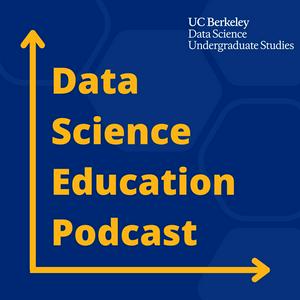
Get the free radio.net app
- Stations and podcasts to bookmark
- Stream via Wi-Fi or Bluetooth
- Supports Carplay & Android Auto
- Many other app features
Get the free radio.net app
- Stations and podcasts to bookmark
- Stream via Wi-Fi or Bluetooth
- Supports Carplay & Android Auto
- Many other app features


The Data Science Education Podcast
Scan code,
download the app,
start listening.
download the app,
start listening.











